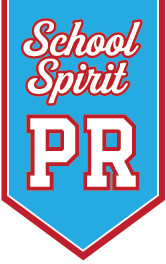Given the right circumstances, the transition from journalist to school district communicator can be seamless. While journalists possess strong writing and storytelling skills, it’s important to recognize that the role of a school district communicator extends far beyond traditional journalism. Media relations, though important, are often just a small part of the job.
(This advice applies not only to former journalists but also to educators transitioning into school communication roles. By providing them with the necessary support and resources, you can help them develop the skills they need to be successful.)
A Unique Perspective
Former journalists can bring a fresh perspective to school district communications. Their ability to craft compelling narratives, interview key stakeholders, and manage deadlines can be invaluable. However, it’s essential to acknowledge that the role of a school district communicator requires a broader skill set.
Beyond the Byline When hiring a former journalist, looking beyond their on-air presence and polished delivery is crucial. While these qualities are important, they should not be the sole criteria for selection. Consider the candidate’s strategic thinking, crisis communication, and stakeholder engagement skills.
A Word of Caution:
Be wary of hiring a former journalist who sees themselves as a journalist in residence. While their storytelling abilities are valuable, they must be willing to embrace a broader role that includes strategic planning, crisis communication, and community engagement. Your expectations for the role will define how they approach it and how they see themselves and their fit into the organization.
A New Set of Skills It’s important to note that most journalists have limited (if any) experience supervising staff or managing budgets. If these are essential components of the school district communication role, be prepared to provide additional training and support. Consider hiring a coach or mentor to help your new hire develop these skills.
Investing in Professional Development To ensure the success of your new hire, invest in their professional development. Encourage them to join state and national associations for school communicators, such as the National School Public Relations Association (NSPRA) and your state’s school public relations association. These organizations offer a wealth of resources, training opportunities, and networking events.
A Personal Perspective As a former television journalist, I can attest to the challenges and rewards of transitioning to a school district communication role. While my journalism background provided a solid foundation, it took several years to develop the strategic thinking, crisis communication, and stakeholder engagement skills necessary to be an effective school district communicator.
By providing former journalists with the time, resources, and support they need to grow and learn, school districts can cultivate talented communication professionals who can help shape their narrative and build stronger relationships with the community.







